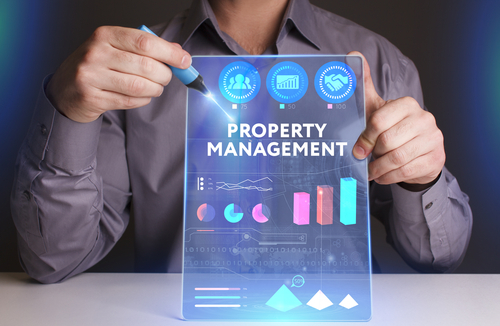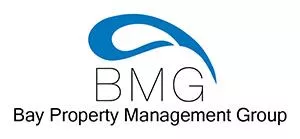13 Things You Need to Know Before Renting Out Your Property
One of the best ways to generate income in real estate is to invest in rental properties. You can rent out your property for the long term and target temporary residents. Long-term tenants are those who cannot buy their own homes yet. If you’re located in an area with a strong tourism industry, you can also invest in short-term rentals. Long-term rentals are homes that are rented out for a year or more. It is ideal if you want to earn a steady income by renting out your property.
On the other hand, short-term rentals are usually vacation homes that are rented out for 30 days or less. It is great for those who want to take advantage of a dynamic income stream, especially if your area sees a high demand for vacation rentals. Whatever your chosen investment strategy is, it’s crucial to be well-informed before renting out your property.
13 Expert Tips for Renting Out Your Property
Here are 13 essential things you, and every investor, should know before renting out your property to ensure a successful and hassle-free experience:
1. Understand Local Laws and Regulations
Before renting out your property, the first step is to research and understand local landlord-tenant laws and regulations. Each jurisdiction may have specific rules governing rental properties, including tenant rights, lease agreements, and eviction procedures.
Additionally, be aware of any rental property licensing requirements that may apply in your area. Failure to adhere to such regulations can lead to legal troubles and fines.
2. Determine the Rental Market
Finding the right market for your chosen investment strategy is crucial to your success. For instance, if you’re looking to invest in short-term rentals, make sure to find the best short-term rental markets.
Also, conduct a thorough market analysis to determine the right rental rates in your area. Understanding the demand for rental properties in your target market will help you set competitive rental rates and attract potential tenants.
 3. Prepare the Property for Renting
3. Prepare the Property for Renting
Before listing your property for rent, ensure it meets health and safety standards. Complete any necessary repairs and upgrades to make the property attractive to potential tenants.
A well-maintained and aesthetically appealing property is more likely to attract quality tenants and command higher rental rates. Consider staging the property with furnishings and decor to create a welcoming environment.
4. Screen Potential Tenants
Establishing a tenant screening process is crucial to choosing responsible tenants. Implement a thorough screening process that includes checking credit scores, employment history, and references.
A background check can help you assess a tenant’s criminal record and provide additional peace of mind. By learning how to screen tenants properly, you can minimize the risk of late payments, property damage, and eviction.
5. Learn to Create a Comprehensive Rental Agreement
Drafting a legally sound rental agreement or lease contract is vital to protect your rights and interests. Clearly define tenant responsibilities, including rent payment, maintenance obligations, and rules regarding pets, smoking, and property use.
Also, ensure that the lease agreement complies with local laws and includes provisions for lease terms, security deposits, and termination clauses.
6. Establish a Fair Rent Collection System
Decide on a rent collection system that works best for you and your tenants. Determine how you will collect rent payments, whether it’s through online platforms, checks, or in person. Set clear rent due dates and communicate your expectations regarding late payment policies.
A property management system can streamline the rent collection process, making it more efficient and convenient for both parties.
 7. Understand Maintenance and Repairs
7. Understand Maintenance and Repairs
Clearly define the responsibilities for maintenance and repairs in the rental agreement. Specify which party is responsible for certain types of repairs and establish a protocol for reporting and addressing maintenance issues promptly. Keeping records of all maintenance requests and rehabilitation is essential for reference and documentation.
8. Obtain Adequate Insurance Coverage
Consult an insurance agent to understand the appropriate insurance coverage for your rental property. Ensure that your insurance policy protects against property damage, liability claims, and loss of rental income. Adequate insurance coverage provides financial protection in case of unforeseen events or accidents.
9. Comply With Tax Obligations
Renting out a property comes with tax implications that you must be aware of. Understand the tax obligations associated with rental income and property ownership. Keep track of rental income, expenses, and applicable deductions. Consult a tax professional or accountant to ensure compliance with local tax laws and maximize your tax benefits as a landlord.
10. Prepare for Vacancies
Vacancies are an inevitable part of being a landlord. Create a financial buffer to cover expenses—such as mortgage payments, property taxes, and maintenance costs—during vacant periods. Develop a marketing plan to attract new tenants quickly when vacancies occur.
11. Learn About Eviction Laws
While no landlord wants to face eviction, it’s important to be familiar with eviction laws and procedures in your jurisdiction. Understand valid reasons for eviction and the legal process involved. If faced with eviction proceedings, consult legal counsel to ensure you follow the proper legal steps and protect your rights as a landlord.
12. Maintain Good Communication With Tenants
Establishing open lines of communication with your tenants is crucial for a harmonious landlord-tenant relationship. Respond promptly to tenant inquiries and concerns, and address any issues or maintenance requests as soon as possible. A positive and respectful communication approach fosters trust and encourages lease renewals.

13. Hire a Reputable Property Management Company
Owning a rental property requires a lot of time and effort. Consider hiring a professional property management company to help you with the day-to-day operations of your rental business.
They can handle various tasks, including tenant screening, rent collection, maintenance coordination, and property marketing. Research reputable property management firms to help you succeed in your rental business.
Reasons Why You Should Consider Investing in Rentals
Investing in real estate has long been considered a reliable and profitable investment strategy. Among the various types of real estate investments, rental properties stand out as an excellent option for both experienced investors and those just starting their investment journey.
Whether you’re looking for a steady income stream or long-term wealth accumulation, there are several reasons why you should consider renting out your property.

-
Rental Income and Cash Flow
Investing in rentals offers the potential for generating lucrative rental income. Long-term rental properties provide a regular cash flow through monthly rental payments. If you choose to buy vacation rentals for sale, you can also benefit from potentially high returns, especially if you’re in an area with a high demand for vacation rentals.
-
Appreciation and Equity Growth
Aside from generating rental income, you can also benefit from long-term appreciation and equity growth. Real estate values tend to increase over time, especially in desirable locations with growing economies and populations. As the property appreciates, your equity in the investment grows.
-
Tax Benefits
Investing in rentals also comes with various tax advantages. Rental property owners can deduct several property-related expenses, such as mortgage payments, property taxes, insurance premiums, maintenance costs, and property management fees.
The deductions can significantly reduce your taxable income and increase your overall return on investment.
-
Diversification and Stability
Including rental properties in a well-diversified portfolio can help reduce risk and safeguard against market volatility.
Generally, real estate investments are more stable and less susceptible to short-term economic fluctuations. Rental housing, in particular, exhibits relatively consistent demand, serving as a reliable income source even in times of economic downturn.
-
Hedge Against Inflation
Inflation can minimize the purchasing power of your money. However, rental properties can act as a hedge against inflation. When the cost of living increases, rental rates rise as well.
By owning rental properties, you can adjust rental prices to keep up with inflation, ensuring that your income remains relatively stable and maintains its value over the long term.
-
Control and Appreciation Through Improvements
Owning rental properties gives you control over the asset and the ability to make improvements to increase its value. Upgrading and renovating rental units can attract higher-quality tenants and command higher rental rates. As you enhance the property’s condition and amenities, its value appreciates, increasing your return on investment.
-
Retirement Income and Wealth Building
Investing in rentals provides an avenue for building long-term wealth and creating a sustainable income stream for retirement. As you acquire and manage multiple rental properties, your portfolio grows, and your cash flow increases.
Over time, rental income can become a reliable source of passive income, allowing you to enjoy financial independence and security during retirement.
The Bottom Line
Renting out your property can be lucrative, but it requires careful consideration and preparation. By following the tips mentioned above, you can ensure a successful and profitable rental property experience. Stay informed, communicate effectively with tenants, and consider professional assistance when necessary.
If you want to focus on growing your investment, it’s best to work with a reliable property manager to ensure that every small detail of your rental business is well taken care of.

Meet the Author
Peter Abualzolof is the CEO and co-founder of Mashvisor, a real estate data analytics company that helps even beginners make profitable investments in minutes.


